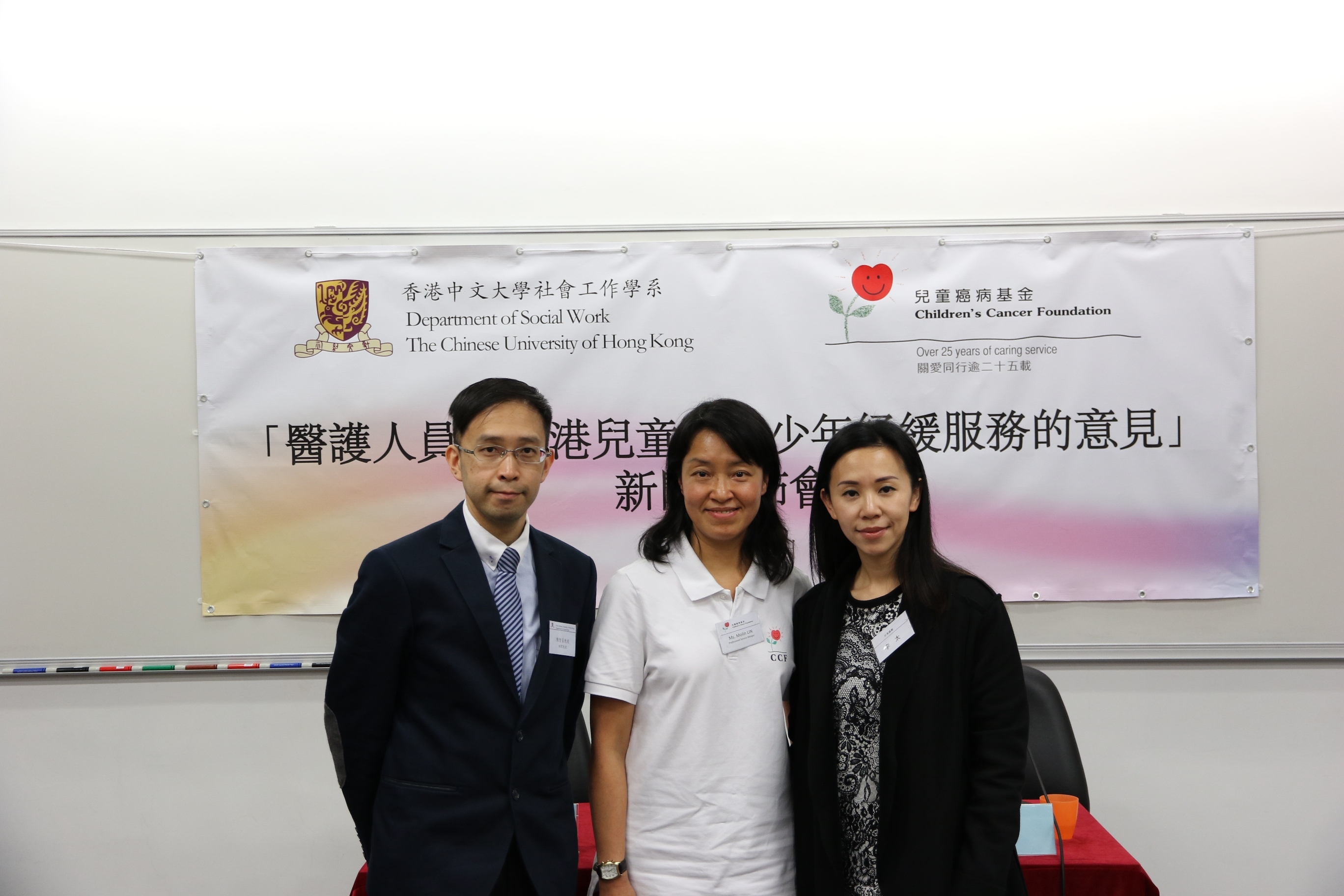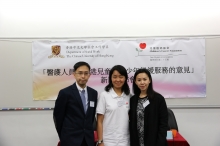CUHK
News Centre
CUHK Department of Social Work Releases Survey Results on Paediatric Palliative Care Services
The Department of Social Work, The Chinese University of Hong Kong (CUHK) has conducted a survey which indicates that paediatric doctors and nurses generally are experiencing difficulties in taking care of children and adolescents who have life-limiting conditions. The doctors and nurses involved generally agreed that improvement is required in many aspects, such as policy and resources allocation, to better manage paediatric palliative care services in Hong Kong.
According to the Hospital Authority (HA), the number of children and adolescents (aged 20 or under) who were newly diagnosed with cancer in 2012 was 294, and the number of children and adolescents who died of cancer was 49. Though these numbers are small when compared with that of other age groups, children and adolescents facing life-limiting conditions have their unique needs. Their family members can experience stress and distress. Medical and nursing professionals face challenges in providing paediatric palliative care to children and adolescents, which are different from taking care of other paediatric patients.
Paediatric palliative care is the service provided to children and adolescents suffering from life-limiting illnesses, and to their family members, focusing on holistic care and the quality of life. At present, there is no palliative care ward for children and adolescents in HA hospitals. Only one NGO in Hong Kong, the Children’s Cancer Foundation, has cooperated with five hospitals with a paediatric oncology unit to provide paediatric palliative care services to these children and adolescents, as well as to their families.
The research study was conducted by Dr. Chan Chi-ho, Wallace, assistant professor in the Department of Social Work, CUHK who collaborated with the Children’s Cancer Foundation from December 2013 to August 2014 to better understand the views of paediatric medical and nursing professionals on paediatric palliative care. 680 paediatric professionals were recruited to complete a questionnaire of whom 93.2% were HA paediatric doctors and nurses. They were asked to rate their perceived difficulties and challenges on different items, on a scale of 1 to 5 with 5 being the most difficult and 3 being the midpoint. Researchers then categorized items statistically and computed the mean scores in different domains.
The results showed that the rating of the four domains including knowledge, advance skills, professional self-identity and work environment were generally above the mid-point. On the knowledge domain, 64.2% of the participants experienced difficulties (e.g. knowledge of palliative care, knowledge of the process of death and dying). 76.4% experienced difficulties in the advance skills domain (e.g. discussing advance care planning with patients and family members, breaking bad news, informing family members of the death of children). About 61.5% of the participants showed a rating above the mid-point on professional self-identity, which involves perceived challenges to their professional self (e.g. feeling powerless in facing the suffering of children with life-threatening illnesses, emotional stress due to professional identity and expectations). 70.6% of the participants perceived challenges in the work environment (e.g. human resources, communications within the unit and between different units). (See Table 1)
In addition, the findings indicated that participants with working experience of 5 years or less experienced a significantly higher level of difficulties in different domains, including ‘knowledge’ , ‘skills’, and ‘professional self-competence’.
Participants were also asked to rate the urgency of improvement on different macro-factors on a scale of 1 to 5. Three areas received the highest ratings: human resources (mean score= 4.20), resources allocation (mean score= 3.75), and bridging between hospital and community (mean score= 3.76). (See Table 2)
Dr. Wallace Chan remarked, ‘Paediatric palliative care is different from other paediatric services, in that it is more concerned with the holistic needs (physical, psychological, social, and spiritual) of child patients, and the support to affected families in dealing with issues related to death. We hope the authorities can provide more training in palliative care to less experienced paediatric doctors and nurses, as well as more support on policy and services provision, in particular, emphasis on paediatric palliative care, human resources and resources allocation, such as community support services and bereavement care.’





